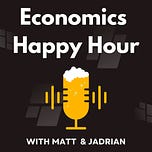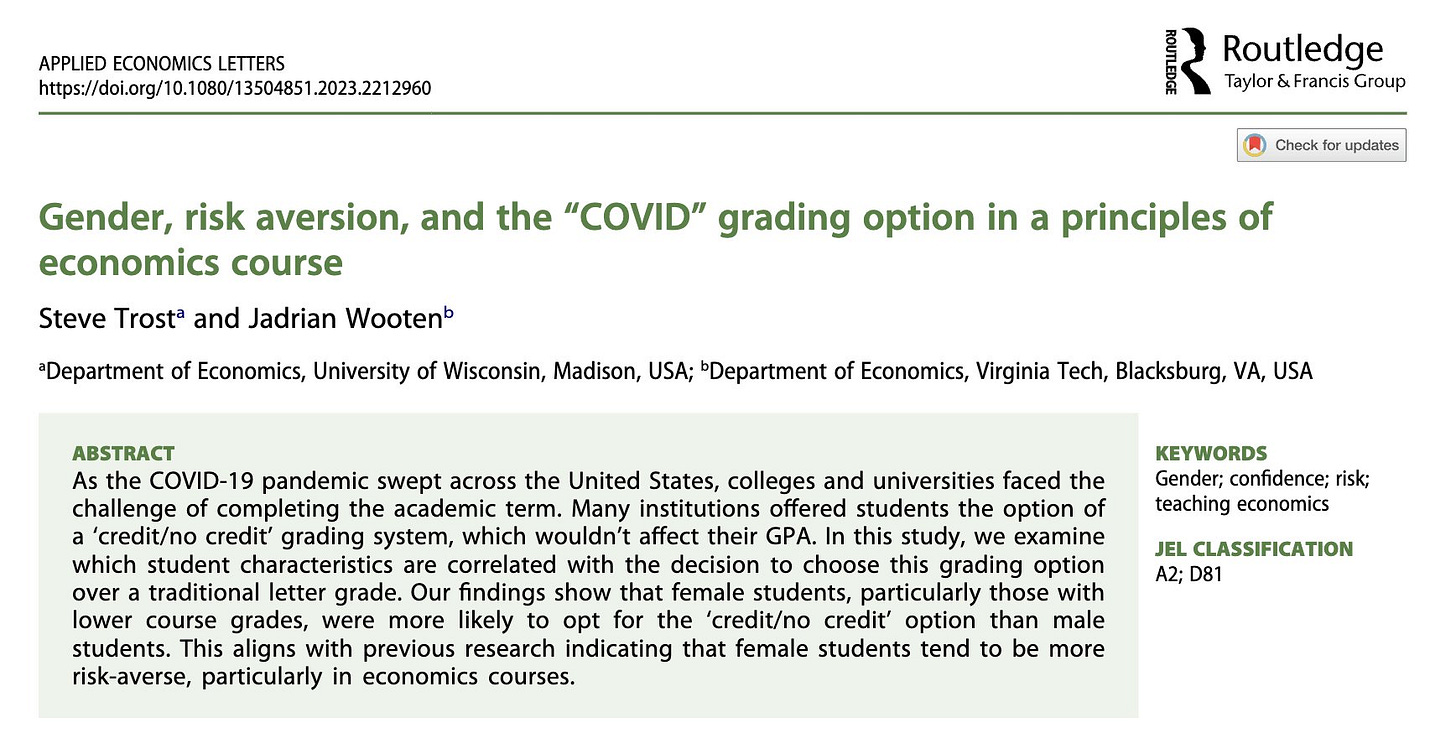In this episode, Matt and Jadrian explore the fascinating relationship between college education and higher pay. While the conventional belief suggests that obtaining more knowledge and skills through education leads to increased earning potential (known as the human capital model), we delved into an alternative explanation: the signaling effect. This economic concept suggests that a college degree acts as a signal to employers, indicating valuable attributes such as intelligence, work ethic, and conformity. It’s an interesting conversation because it sheds light on the complex dynamics behind a complicated years-long experience for a lot of people.
In this episode, we discuss:
What economists mean by “the human capital model”
How a signal might be valuable for students
Research support around signaling and human capital
Pop culture references
And much more!
Catch up on sold old episodes:
You can also listen to us on Google Podcasts, TuneIn Radio, and Apple Podcasts. If one of these is your go-to podcast service, be sure to rate us and subscribe!
Watch this episode on YouTube:
Some show notes:
Matt Kicked it off with a classic Founders All-Day IPA, while Jadrian went with a Dark Starr from Starr Hill Brewery. The two opened the show by chatting about the administrative parts of their job like alumni networking and commencement festivities. Since we were talking about graduation, it seemed like a good time to talk about why college degrees are so valuable. Americans who have a college degree earn about 50% more than people who only have a high school diploma:
The signaling and human capital models are two popular ways to understand how education affects job opportunities. The signaling model suggests that employers can make guesses about a person's abilities and qualities based on their education or work experience. Employers use this prediction to judge how well someone might perform on the job. In contrast, the human capital model focuses on the knowledge and skills gained through education. It says that more education improves job performance because people learn useful things in school.
Both models try to explain how education can impact a person's chances of getting a job and doing well in it. If you’re looking for a good read on the subject, check out Bryan Caplan’s book The Case Against Education. In it, he tries to pin down how large the signaling effect is for an average graduate.
One of the research topics for this episode is based on recently published work by Jadrian and Steve Trost. The two looked at how students behaved during the pandemic when they were faced with the pass-fail decision at the end of the term. Students knew their course average going into the final exam, but had to decide before taking the final exam whether they wanted to “hide” their letter grade with a Pass/Fail option. We were focused on gender differences in that decision and largely found that female students were significantly more likely than male students to “hide” their letter grade when their average grade going into the final was at a C level:
This week’s pop culture references:
Matt kicked off our pop culture references with song lyrics from Hamilton’s “My Shot.” The full song is long, but there are a few interesting parts related to this episode’s conversation. There’s a section early on related to getting a scholarship, and learning a lot of things (brains), but not looking like a typical graduation (polish). Signaling is a lot like the polish of a degree in which college graduates look nice, but it’s not always clear if they learned a lot along the way:
I'ma get a scholarship to King's College
I probably shouldn't brag, but dang, I amaze and astonish
The problem is I got a lot of brains but no polish
Another section of the song talks about the value of joining a rebellion. It’s the chance to learn some things, but more important for Mulligan is the opportunity to advance socially. Sometimes, the benefits aren’t necessarily what you learn but where your degree will take you later in life socially:
I'm joining the rebellion 'cause I know it's my chance
To socially advance, instead of sewin' some pants (woo)
Jadrian went with the classic scene from Good Will Hunting. Matt Damon works as a janitor at Harvard, but that doesn’t mean he isn’t “wicked smart.” In this particular scene, Will (played by Matt Damon) turns the tables on a condescending Harvard student who tries to make a fool of his friend Chuckie (played by Ben Affleck).
Like, share, and comment!
Enjoyed today’s episode? Share it with your friends! Economics Happy Hour is a free podcast and this post is freely available to readers on Substack. Share away! We would also love to hear from you so leave a comment! If there are topics you want us to talk about, please let us know.

















Share this post